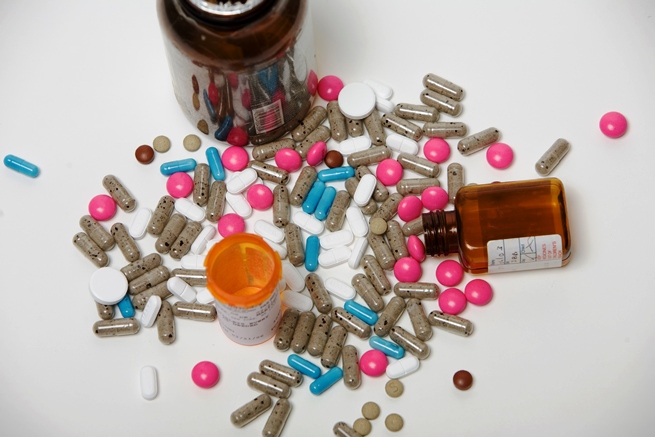Don’t Toss that Medication!

by Gail Wheeler
Bring your standard medications to the Medical Center for proper and safe disposal. Any controlled medications such as pain medications, opioids or others should be brought to Public Safety for disposal in the conveniently located medication drop box. All medications brought in for disposal should remain in their original containers.
Many pharmacies participate in a similar “drug take-back” program for medication dropoff. The FDA provides a location finder for pharmacies and other community locations for medication disposal.
If you must dispose of pills or tablets at home, it’s a good practice to first crush or mix medications into coffee grounds, cat litter or something else unpalatable. Put the mixture into a zip-top bag to avoid leakage, and dispose of it in the trash. When throwing away empty prescription bottles, scratch off personal information from the label.
You Can Help Protect Florida’s Waters
Flushing or pouring over-the-counter or prescribed medications into toilets or sinks will eventually end up in Florida’s waters. The Redfish Pharmaceutical Contaminants Study was a yearlong research project funded by the Bonefish & Tarpon Trust (B&TT) and conducted by Florida International University’s Coastal Fisheries Research Lab.
In the study, Redfish in nine Florida estuaries were tested for pharmaceutical contaminants. Of 113 redfish sampled, only seven contained no drugs. A total of 17 different pharmaceuticals comprising eight drug classes were detected across all samples. Cardiovascular medications, opioid pain relievers and psychoactive medications were the concentrations most commonly detected. The antiarrhythmic medication Flecainide and the opioid pain reliever Tramadol were detected in over 50 percent of the redfish. Pharmaceutical contaminants originate most often from human wastewaters that are not sufficiently removed by conventional water treatment.
Needle Disposal
The Medical Center can provide you with biohazard containers for needles and “sharps,” and you can drop off these filled containers there for proper disposal by its contracted biohazard waste provider.
